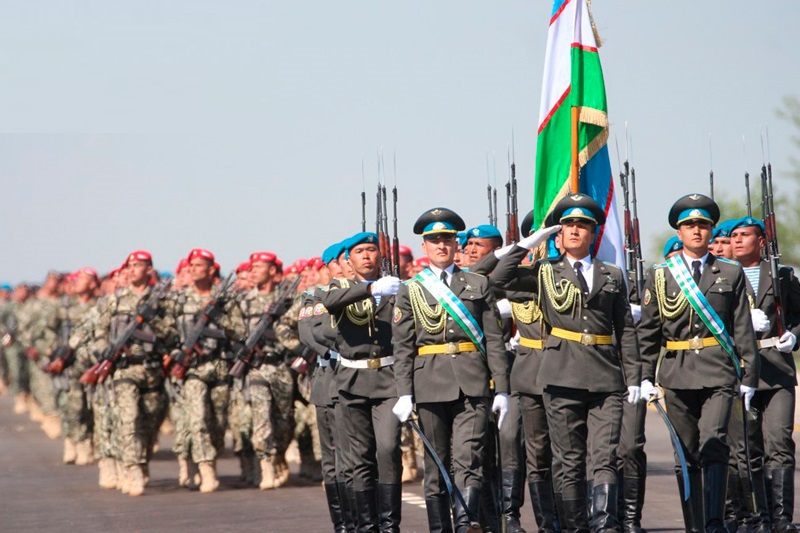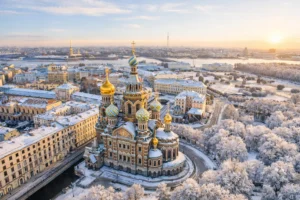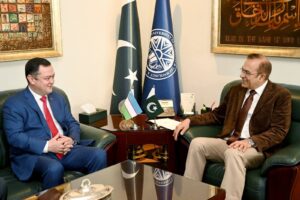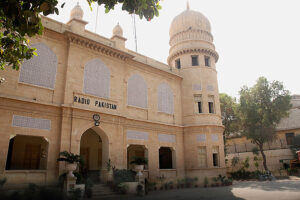Armed Forces are reliable guarantor of ensuring stability of New Uzbekistan

The strategy of its own path of renewal and progress, which Uzbekistan is consistently implementing, has provided conditions for stable and sustainable development and has received recognition from the world community.
Uzbekistan is a state capable of ensuring its sovereignty and taking its rightful place in the world community, politics, economics and culture.
The most important condition for the further development of Uzbekistan, the construction of a democratic legal state and a fair civil society is ensuring national security, the main component of which is military security.
The key element in ensuring the military security of the state is the Armed Forces.
The history of the Armed Forces of Uzbekistan dates back to January 14, 1992, when all military formations stationed on the territory of the Republic of Uzbekistan were taken under the jurisdiction of the country. It was this date that became the starting point for the formation of the national army and is inscribed in golden letters in the chronicle of the history of the independent state.
Over the years of independence, the army of Uzbekistan has passed a difficult and at the same time glorious path. The Armed Forces have become a reliable guarantor of ensuring independence, a peaceful and prosperous life, and the successful implementation of democratic reforms in the republic.
Thanks to the radical reforms carried out in recent years, in a historically short period it was possible to create a mobile and compact national army that is capable of ensuring security and stability in the country and the inviolability of its borders.
It will not be an exaggeration to say that our highly trained and brave military personnel are a reliable shield of their Motherland.
During the years of formation of the young state, the Armed Forces more than once stood up to defend its state border, territorial integrity and constitutional system. The people of Uzbekistan are rightfully proud of their army, their brave and courageous sons – defenders of the Motherland, and deeply honor the unfading memory of their dedicated servicemen who died heroically in the line of duty.
The Armed Forces are the basis of the military organization of the state and the country’s defense system, designed to contain and prevent military conflicts, as well as ensure the military security of the state.
In accordance with the Defense Doctrine (2018), the main tasks of the Armed Forces in peace and war are:
- repelling military aggression;
- protection and security of the State Border of the Republic of Uzbekistan;
- security and defense of important state (military) facilities and communications;
- prevention and response to emergency situations;
- assistance to law enforcement agencies in countering the subversive activities of destructive forces directed against the foundations of state power and governance, socio-political stability and damage to military security.
Basic principles and features of the defense policy of the Republic of Uzbekistan
The defense doctrine is purely defensive in nature. Our country proceeds from the fact that none of the states is its enemy, builds relations with all countries on the basis of the priority of the country’s national interests, taking into account the generally recognized principles and norms of international law, mutual benefit, equality and non-interference in the internal affairs of other states, settlement of all controversial issues by peaceful means and through negotiations, recognition of the inviolability and immutability of existing interstate borders.
The Defense Doctrine is open in nature, which demonstrates the transparency of the defense policy of the Republic of Uzbekistan.
Also, it should be especially noted that Uzbekistan’s defense policy is based on the principles:
- Non-use of military force against other states, except in cases of suppressing and repelling military aggression;
- Indivisibility of security, inadmissibility of strengthening one’s own security at the expense of the security of other states;
- Non-interference in the internal affairs of other states, peaceful settlement of possible disputes;
- Non-participation in military-political blocs, reserving the right to withdraw from any interstate formation in the event of its transformation into a military-political bloc;
- Defense sufficiency; the adequacy of military development to the nature of modern military conflicts;
- Renunciation of the production, acquisition, storage, proliferation and deployment of nuclear and other types of weapons of mass destruction;
- Commitment to the principles of the Treaty on a Nuclear Weapon-Free Zone in Central Asia;
- Preventing the deployment of foreign military bases on its territory;
- Non-participation of the Armed Forces in peacekeeping operations and military conflicts abroad;
- Reliance on spiritual and moral values and cultural and civilizational identity of the people.
- The Republic of Uzbekistan, pursuing a peace-loving policy, considers active participation in the prevention of military conflicts to be one of its priorities.
The main directions of the policy of the Republic of Uzbekistan in this area are:
- Participation in the work of the United Nations, other international organizations and institutions to ensure international security and develop cooperation;
- Establishing and maintaining strategic partnership relations and creating strong mutually beneficial interstate ties with interested countries based on the long-term interests of the national security of the Republic of Uzbekistan;
- Promoting global efforts to combat the proliferation of weapons of mass destruction; preventing and suppressing manifestations of extremism and international terrorism;
- Development of international military and military-technical cooperation.
Defense Doctrine – the conceptual basis for the development of the Armed Forces of Uzbekistan
Defense doctrine is important in ensuring the country’s security and forms the basis for the development of the Armed Forces. Taking into account the provisions of the Defense Doctrine and the geostrategic location of our country, the structures and tasks of military districts have been radically revised, and the structure of all formations and units of the Ministry of Defense has been completely updated.
Training of military personnel is carried out at the Academy of the Armed Forces, Chirchik Higher Tank Command and Engineering School, Higher Military Aviation School, Institute of Information and Communication Technologies and Communications of the Ministry of Defense, Military Medical Academy of the Ministry of Defense, Training Center for Junior Specialists of the Armed Forces, and relevant institutions of the State Security Service , Ministry of Internal Affairs, Ministry of Emergency Situations, National Guard.
At present, effective measures have been taken to improve the system of continuous military education. The Academy of the Armed Forces has been reformed and a solid foundation has been created for it to become the locomotive of military science in the country.
The Institute of Military Heritage and Contemporary Research of the Armed Forces, created in accordance with the decree of the President of the Republic of Uzbekistan, carries out systematic research into the history of national military art, conducts a study of modern challenges and threats to international, regional and national security in the military sphere, the main directions of development of military art, as well as training of qualified military-scientific personnel.
In recent years, as a result of large-scale reforms, the authority and potential of the national army have significantly increased. Today, representatives of the Armed Forces of Uzbekistan take prizes in many prestigious international military competitions. In particular, military personnel of Uzbekistan are achieving significant success at international army games, in the Cambrian Patrol competition and other major military sports events.
Of course, the national army is an important social institution that unites the people of Uzbekistan around common national values and ideals.
The republic is carrying out systematic work on military-patriotic education of young people based on high spiritual and moral values. The “Vatan Tayanchi” children’s and youth movement, created in 2022, and its groups in secondary schools across the country, covering more than 20 thousand students, are making a worthy contribution to strengthening love and devotion to the Motherland among the younger generation.
It should be emphasized that the most important unifying factor between the state and society is the military-administrative sectors created in the regions, based on the principle “The National Army is our honor and pride,” designed to mobilize citizens to strengthen the country’s defense capability, to attract resources from local government bodies for a common cause .
In Uzbekistan, there is a mixed type of recruitment of the Armed Forces, in which both compulsory military service and contract service are maintained, which is an effective measure.
Firstly, compulsory military service and military service in the mobilization conscription reserve are important and are designed to ensure the training and education of brave, courageous, intellectually and physically developed defenders of the Motherland.
Secondly, many citizens who have completed compulsory military service and service in the mobilization reserve enter and successfully serve under contract in the Ministries of Defense, Internal Affairs, Emergency Situations, structures of the State Security Service, National Guard, Border Troops, thereby strengthening the overall potential of the army of Uzbekistan.
Priority areas for reform and development of the Armed Forces of the Republic of Uzbekistan
Issues of ensuring military security are under the constant attention of the President of the Republic of Uzbekistan. In his festive congratulations to the defenders of the Motherland on the occasion of the 31st anniversary of the formation of the Armed Forces and the Day of Defenders of the Motherland, the President of the Republic of Uzbekistan indicated priority areas for further reform and development of the national army. In particular:
The need to implement measures to master effective forms and methods of conducting combat operations, create a unified automated control system for the Armed Forces, improve the defense and civil protection system on the ground, as well as increase the level of training of all government entities to eliminate the consequences of emergency situations.
Systematic development of the defense industry, as well as the development and implementation of modern advanced information and innovative technologies.
Increasing the professional training of military personnel, especially command personnel, ensuring regular training of lower-level units in order to strengthen resistance to information and psychological influence, improve the quality of combat training, knowledge and skills of personnel of military units.
Further improvement of the system of military education and science, military-patriotic education of young people, the formation of their national identity and devotion to national values.
At the same time, combat potential and high spirituality should become two powerful pillars of the Armed Forces of Uzbekistan.
In modern conditions, taking into account the best practices of leading foreign countries, the main goal of the further development of the army is the strategy of creating a digital and highly intelligent Armed Forces.
The Armed Forces must become a high-tech and professional army, staffed with highly intelligent military personnel, equipped with modern weapons and military equipment, capable of effective action in a rapidly changing geopolitical situation.
Undoubtedly, such large-scale changes will serve to increase the level of the country’s defense capability, the combat power of the Armed Forces, strengthen the unity of the army and the people, strengthen the prestige of the national army at the international level, and will become a reliable guarantor of the stability and prosperity of the New Uzbekistan.


